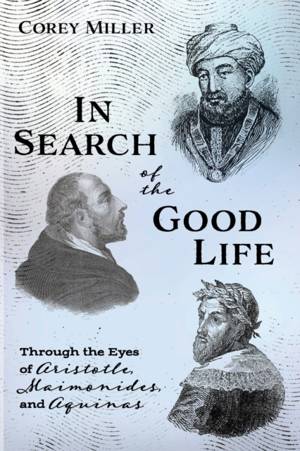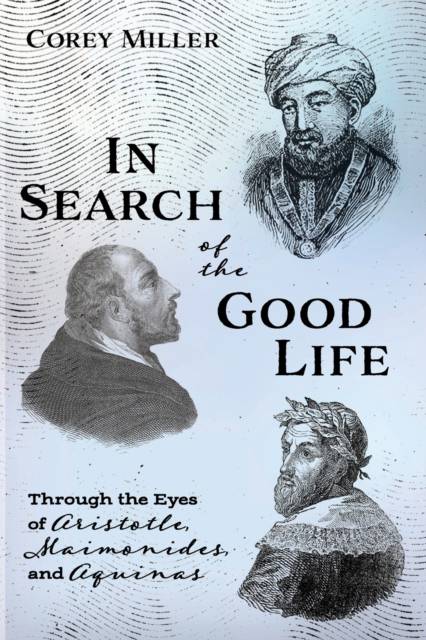
Door een staking bij bpost kan je online bestelling op dit moment iets langer onderweg zijn dan voorzien. Dringend iets nodig? Onze winkels ontvangen jou met open armen!
- Afhalen na 1 uur in een winkel met voorraad
- Gratis thuislevering in België vanaf € 30
- Ruim aanbod met 7 miljoen producten
Door een staking bij bpost kan je online bestelling op dit moment iets langer onderweg zijn dan voorzien. Dringend iets nodig? Onze winkels ontvangen jou met open armen!
- Afhalen na 1 uur in een winkel met voorraad
- Gratis thuislevering in België vanaf € 30
- Ruim aanbod met 7 miljoen producten
Zoeken
In Search of the Good Life
Through the Eyes of Aristotle, Maimonides, and Aquinas
Corey Miller
Paperback | Engels
€ 40,95
+ 81 punten
Uitvoering
Omschrijving
What is the Good Life? Learn from some of the greatest minds in Greek, Jewish, and Christian thought. Comparing their thought reveals a new apex reached in the age-old question concerning the relationship of Jerusalem and Athens, faith and reason. Few have been more influential in Judaism and Christianity than Moses Maimonides and Thomas Aquinas, yet Aristotle influenced them both in significant ways. By adopting and adapting some of Aristotle's best thinking, we can appreciate Maimonides' and Aquinas' search for the Good Life from their respective views, ranging from the fall to human perfectibility. This examines human nature, the human telos, and how each would prescribe the route to the Good Life. For all three, it is ultimately about the knowledge of God. But what does that mean? The comparative approach is more illuminating than if considered in isolation. Comparatively, Aristotle's approach may be characterized as informational, Maimonides' as instructional, and Aquinas' as pneumatic-relational. The role of faith as a virtue in both Maimonides and Aquinas makes a substantive difference over Aristotle's in philosophical and practical ways. It is used to exploit their accounts of the human fall, moral perfection, and ultimate human perfection--the knowledge of God.
Specificaties
Betrokkenen
- Auteur(s):
- Uitgeverij:
Inhoud
- Aantal bladzijden:
- 214
- Taal:
- Engels
Eigenschappen
- Productcode (EAN):
- 9781532653216
- Verschijningsdatum:
- 1/10/2019
- Uitvoering:
- Paperback
- Formaat:
- Trade paperback (VS)
- Afmetingen:
- 152 mm x 229 mm
- Gewicht:
- 294 g

Alleen bij Standaard Boekhandel
+ 81 punten op je klantenkaart van Standaard Boekhandel
Beoordelingen
We publiceren alleen reviews die voldoen aan de voorwaarden voor reviews. Bekijk onze voorwaarden voor reviews.











